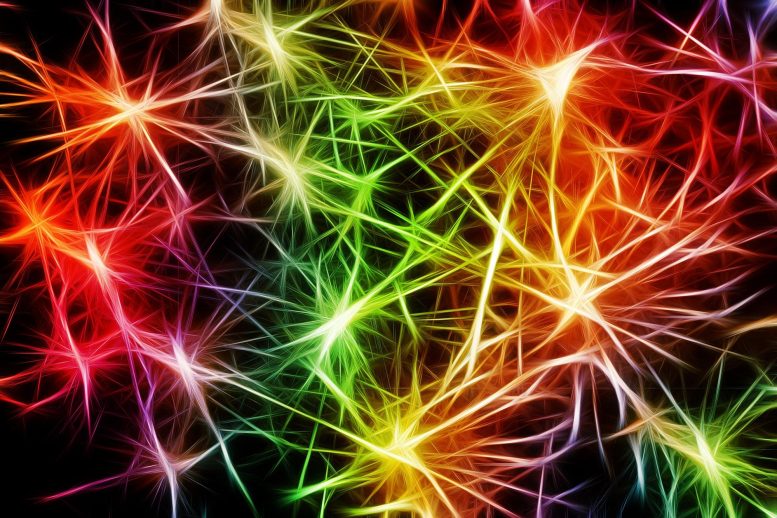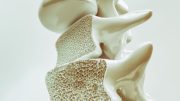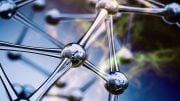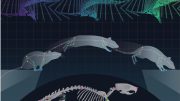
Intermittent fasting may help heal nerve damage by changing the gut microbiome.
Intermittent fasting alters the gut bacteria activity of mice and increases their ability to recover from nerve damage.
Scientists observed how fasting led to the gut bacteria increasing the production of a metabolite known as 3-Indolepropionic acid (IPA). This potent neuroprotective antioxidant is required for regenerating nerve fibers called axons – thread-like structures at the ends of nerve cells that send out electrochemical signals to other cells in the body. The new research is published in Nature and was conducted by researchers from Imperial College London.
“When IPA cannot be produced by these bacteria and it was almost absent in the serum, regeneration was impaired.” — Professor Simone Di Giovanni, Chair in Restorative Neuroscience
Although this novel mechanism was discovered in mice, it is hoped to also hold true for any future human trials. The research team states that the bacteria that produces IPA, Clostridium sporogenesis, is found naturally in the guts of humans as well as mice and IPA is present in human bloodstreams too.
“There is currently no treatment for people with nerve damage beyond surgical reconstruction, which is only effective in a small percentage of cases, prompting us to investigate whether changes in lifestyle could aid recovery,” said study author Professor Simone Di Giovanni from Imperial’s Department of Brain Sciences.
“Intermittent fasting has previously been linked by other studies to wound repair and the growth of new neurons – but our study is the first to explain exactly how fasting might help heal nerves.”
Fasting as a potential treatment
The experiment assessed nerve regeneration of mice where the sciatic nerve, the longest nerve running from the spine down the leg, was crushed. Half of the mice underwent intermittent fasting (by eating as much as they liked followed by not eating at all on alternate days), while the other half were free to eat with no restrictions at all. These diets continued for a period of 10 days or 30 days before their operation, and the mice’s recovery was monitored 24 to 72 hours after the nerve was severed.
The length of the regrown axons was measured and was about 50% greater in mice that had been fasting.
Professor Di Giovanni said, “I think the power of this is that opens up a whole new field where we have to wonder: is this the tip of an iceberg? Are there going to be other bacteria or bacteria metabolites that can promote repair?”
Investigation reveals metabolism link
The scientists also studied how fasting led to this nerve regeneration. They discovered that there were significantly higher levels of specific metabolites, including IPA, in the blood of diet-restricted mice.
To confirm whether IPA led to nerve repair, the mice were treated with antibiotics to clean their guts of any bacteria. They were then given genetically modified strains of Clostridium sporogenesis that could or could not produce IPA.
“When IPA cannot be produced by these bacteria and it was almost absent in the serum, regeneration was impaired. This suggests that the IPA generated by these bacteria has an ability to heal and regenerate damaged nerves,” Professor Di Giovanni said.
Importantly, when IPA was administered to the mice orally after a sciatic nerve injury, regeneration and increased recovery were observed between two and three weeks after injury.
The next stage of this research will be to test this mechanism for spinal cord injuries in mice as well as test whether administering IPA more frequently would maximize its efficacy.
“One of our goals now is to systematically investigate the role of bacteria metabolite therapy.” Professor Di Giovanni said.
More studies will need to investigate whether IPA increases after fasting in humans and the efficacy of IPA and intermittent fasting as a potential treatment in people.
He said: “One of the questions that we haven’t explored fully is that, since IPA lasts in blood for four to six hours in high concentration, would administering it repeatedly throughout the day or adding it to a normal diet help maximize its therapeutic effects?”
Reference: “The gut metabolite indole-3 propionate promotes nerve regeneration and repair” by Elisabeth Serger, Lucia Luengo-Gutierrez, Jessica S. Chadwick, Guiping Kong, Luming Zhou, Greg Crawford, Matt C. Danzi, Antonis Myridakis, Alexander Brandis, Adesola Temitope Bello, Franziska Müller, Alexandros Sanchez-Vassopoulos, Francesco De Virgiliis, Phoebe Liddell, Marc Emmanuel Dumas, Jessica Strid, Sridhar Mani, Dylan Dodd and Simone Di Giovanni, 22 June 2022, Nature.
DOI: 10.1038/s41586-022-04884-x









I, for one, would like to see the IF experiments focusing much more on 16:8 or the like, not alternate day fasting, bc the latter is, by far, the most difficult to maintain, where as timewindow fasting is quite easy.
2 years ago i switched from 12:12 to OMAD : A short window of 2 (4 at most) hours to eat a day.
Im 41 and i finally got my weight back to normal. (I thought ill never recover that)
I have done intermittent fasting, sometimes up to 72 hours at a time. I have a net weight loss of 190 pounds so far and one hip has stopped hurting. Before, both hips were in chronic pain and I could not put any weight on them. I’m having to lose weight in order to have bilateral hip joint replacement. Now I wonder if this could be the explanation for the one hip’s chronic pain dissipating and if the other hip will stop hurting too. The hip no longer in pain was the first one to trouble me, but I can now put all my weight on that leg, just not for a long time. The other hip compensated and has now worn down. We’ll see if it eventually heals.
I haven’t gone back to the surgeon yet. I’m interested to hear what he thinks about this.
I have severe nerve pain and spasticity issues due to damaged nerves from a removed inner canal spinal cord tumor that was also growing into my brain in 1993. Not sure why the nerves never regenerated as they weren’t severed, only damaged. Maybe there is scar tissue built up? My neurosurgeon has no clue. I have fasted 96 hours and 66 hours on 2 separate times in the last 2 years and I did not receive any benefit to my condition. I usually fast 12-15 hours from dinner to breakfast each day. I may try a 7 day fast to see if that helps. But I believe there are major benefits to fasting. God gave our bodies a tremendous capability to heal. It’s just that the medical system has destroyed that ability as they have most thinking we heal by injecting or swallowing toxic meds to bring “health”.
Fasting works, especially when we are tutored on how to commit our soul and body to the designer (Christ Jesus). We do a diligent work at keeping our mind on good reports and all that make living a laughing experience.
Experiment with your own body and see what happens.
Fasting in some cases will help,if you do not tamper with nature. Cutting it off or replacing it with a foreign object is not fixing it. That only takes you into a whole nother stage, Depression.